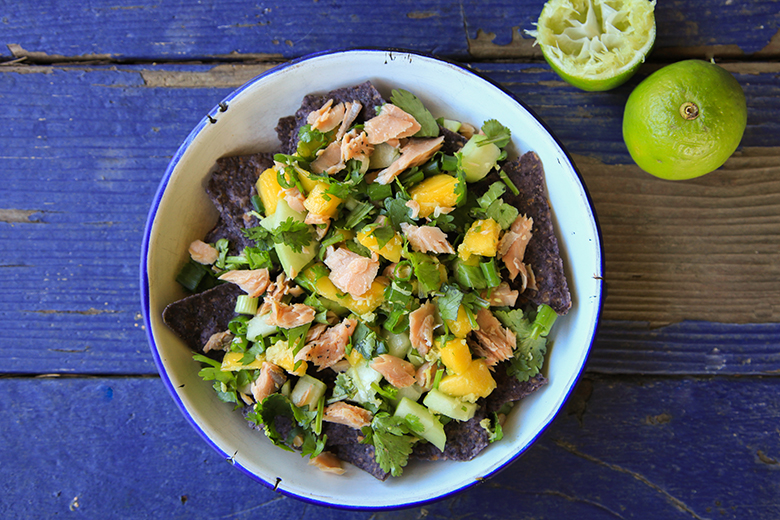
The tiny kitchen of our Vermont Airbnb offered up breathtaking views of snow-covered farm fields from its floor-to-ceiling windows. What it didn’t have, however, was a stocked pantry. By the time we’d arrived the night before, the doors of the Putney Food Co-Op were closed up tight and I was dreading having to head outside to the store into the chilly morning for breakfast.
Enter Patagonia Provisions. The line of shelf-stable packaged food items, including organic soup and chili, organic apricot and almond bars and more is one of my travel go-tos. I had thrown a pack of their Organic Creamy Banana Breakfast Grains in my bag and would be eating hot, creamy cereal within 10 minutes.

Think Patagonia, and outdoor activities like hiking probably come first to mind, but their food line works just as well while camping as it does at an Airbnb or for a quick meal at home. In addition to eating their breakfast grains as hot cereal I’ve made both pancakes and muffins from the mix in the past. And the organic soaps and chili are an easy meal on a busy night.
“They’re super convenient. I think people hear Patagonia and think it must be outdoor food but it’s not just outdoor food. You can take it out in the back country, but they’re also easy to use in your everyday life as prescribed or in other products. I’m a working mom, and on a busy night I can pull out one and know my family is getting great nutrition,” says Birgit Cameron of Patagonia Provisions.

Cameron helped develop Patagonia Provisions, which launched in 2013. And while it might seem odd that what is primarily a clothing company started a food line, in reality it fits right into the ethos of Patagonia.
“Agriculture is one of the biggest issues in terms of climate change, and we felt we couldn’t stay away,” Cameron says.

Through Patagonia Provisions, the company is using regenerative and organic growing methods to find solutions to some of the environmental issues facing the food industry.
They started with a salmon product with a goal of providing consumers with wild salmon that, instead of depleting the salmon population (and other seafood populations that get caught up in the fishing), would help to restore and regenerate the oceans. To that end they’re choosy about the fishermen they work with to ensure the salmon is not coming from places overfished.

From salmon they expanded to soups, bars and even beer. Their Long Root Ales, available as a dry, crisp grapefruit-hop flavor pale ale, or as the Whit, a Northwest twist on the Belgian-style Witbier brewed with coriander and orange peel, are made from a perennial grain called Kernza.
The Kernza is farmed using organic regenerative agriculture practices, a farming system involving the diversification of crops and animals that minimizes tilling, and over time can create healthy soil and pull in carbon from the air.

When creating a product, Cameron and the Patagonia Provisions team looks for farmers and producers that practice organic farming methods, have a strong animal welfare and social fairness philosophy and that are open to adding more regenerative and restorative farming acres.

“It takes a while to get there,” Cameron says. “You need to find farmers that are open to organic but also have the infrastructure in place to handle the ingredient and add on regenerative practices to help better the ecosystem.”

And Patagonia Provisions is committed to supporting farmers working to get there. It’s one of the reasons they’re working with Wild Idea Buffalo Co. ranches for their Buffalo Jerky. The ranches in the Great Plains are working to restore native grassland through grazing.
By making it a little easier to eat nutritious, convenient foods in a climate friendly manner, it’s easy to see how Patagonia Provisions could become a staple for everyday life and maybe inspire other companies along the way.
Find them online from Patagonia Provisions and in retail stores like REI, Wegmans and soon at Whole Foods.



